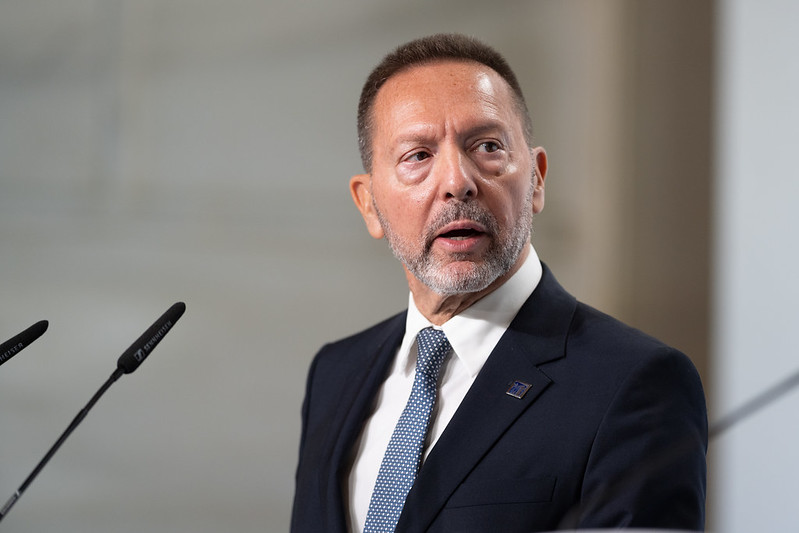ECB’s Stournaras Reaffirms Expectation of 2% Terminal Rate in 2025
29 April 2025

By David Barwick – FRANKFURT (Econostream) – European Central Bank Governing Council member Yannis Stournaras on Tuesday said that he continued to see the terminal rate of the ECB’s policy easing at 2% and to be reached this year.
In a speech at CEO Clubs in Athens, Stournaras, who heads the Bank of Greece, said, ‘Monetary policy in 2025 is expected to become progressively less restrictive, as policy rates, in my view, will continue to decline until they reach 2%.’
‘Markets are pricing in further reductions, but I believe that we should be cautious in view of the very high level of uncertainty’, he continued.
Inflation was very near to the ECB’s target and price stability would be sustainable, he said.
‘In any case, our decisions in the Governing Council of the ECB will continue to be based on the data available from meeting to meeting and its assessment on the outlook for inflation, the dynamics of underlying inflation and the intensity with which monetary policy is transmitted, ensuring the smooth adjustment of the euro area economy to the new monetary reality’, he said.
Downside growth risks in the euro area were ‘significant’, he said, citing US trade policy, geopolitical tensions, the pass-through of previous rate hikes, fiscal constraints, long-term structural deficiencies and ‘potential pressures from the so-called “shadow” non-bank financial sector as well as from the cryptocurrency ecosystem.’
Exchange rate volatility was possible as monetary policies diverged, he cautioned.
‘In this environment of increased complexity, maintaining the credibility of monetary policy requires flexibility and a readiness to readjust its stance in a timely manner in order to limit uncertainty and ensure macroeconomic stability’, he said.
